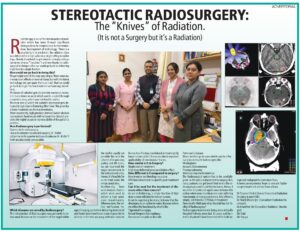Gastrointestinal Cancer
Gastrointestinal (GI) cancer are a group of cancers that affect the organs of
digestive system like Esophagus, Stomach, Small Intestine, Gallbladder, Liver,large
intestine or colon, rectum and anus. As per WHO reports GI cancers are the second
most common cause of cancer deaths.
Incidence of GI cancers in India are on rise because of lifestyle changes (alcohol
abuse, tobacco use ,changes in dietary patterns) and exposure to higher levels of
pollution .
Most of the GI cancers, usually start as benign lesions before turning into
malignant one, giving a opportunity for early detection and complete cure.
Screening & Prevention
Few ways to reduce overall risk of developing GI malignancy
- Cancer screening once a year
- Quit smoking
- Avoid alcohol consumption
- Regular physical exercise
- Immediate treatment of Helicobacter pylori infection if needed
- Maintain healthy diet.
Diagnosis
Endoscopic tests to diagnose GI cancers include these nonsurgical procedures:
Upper GI endoscopy: Examines the lining of the upper part of the gastrointestinal
tract, including the esophagus, stomach, and duodenum.
Colonoscopy and sigmoidoscopy: Used to screen for colorectal cancer.
Biopsy and Molecular testing of the tumor.
Treatment
For upper GI cancers Surgery , Radiation therapy and Chemotherapy all are important.
Treatment can be single modality or multimodality depending on stage and site of
disease.
For Colon tumors Surgery and Chemotherapy are mainstay of treatment with limited
role of Radiaotherapy.
For Anorectal cancers all three modalities are equally important.
